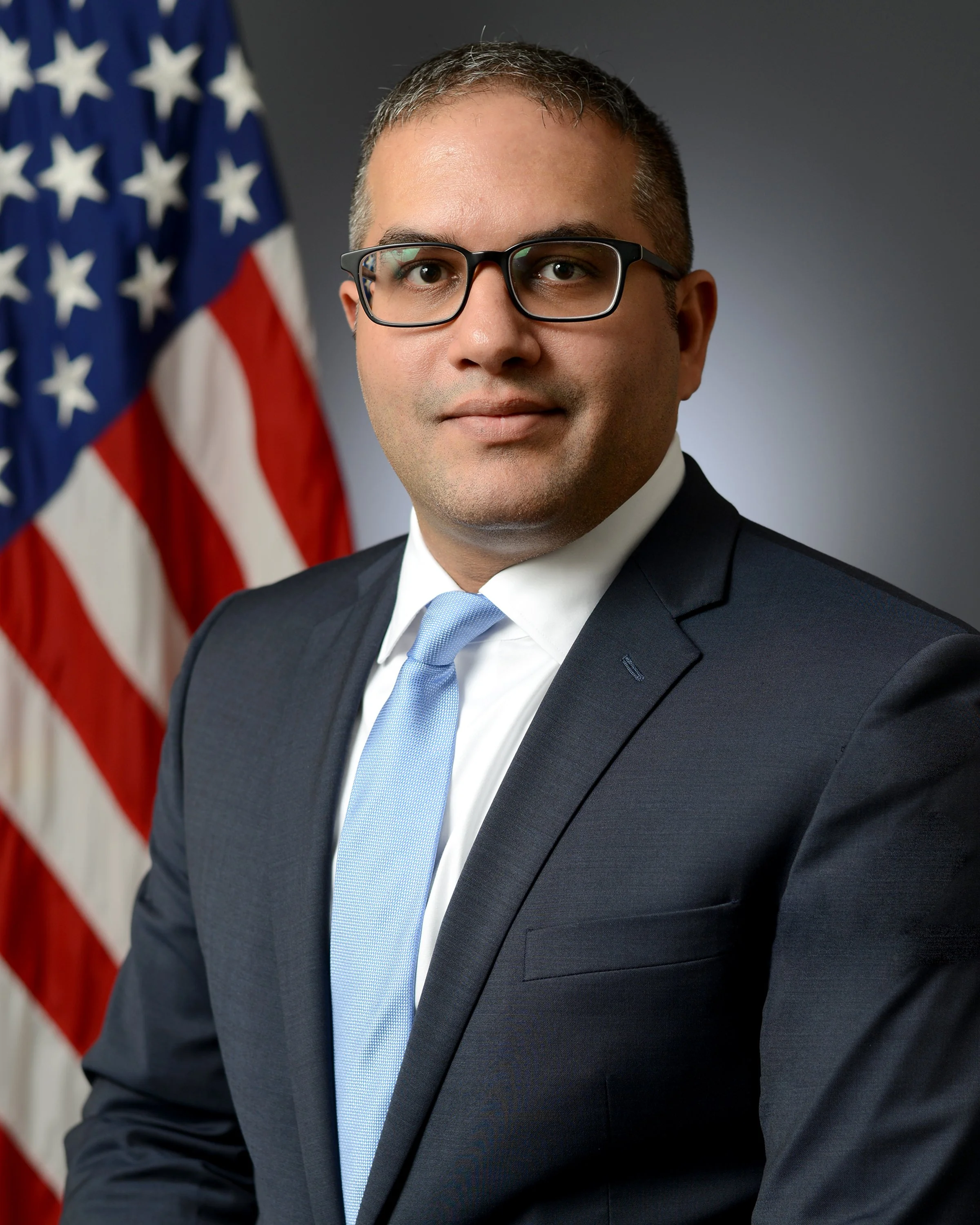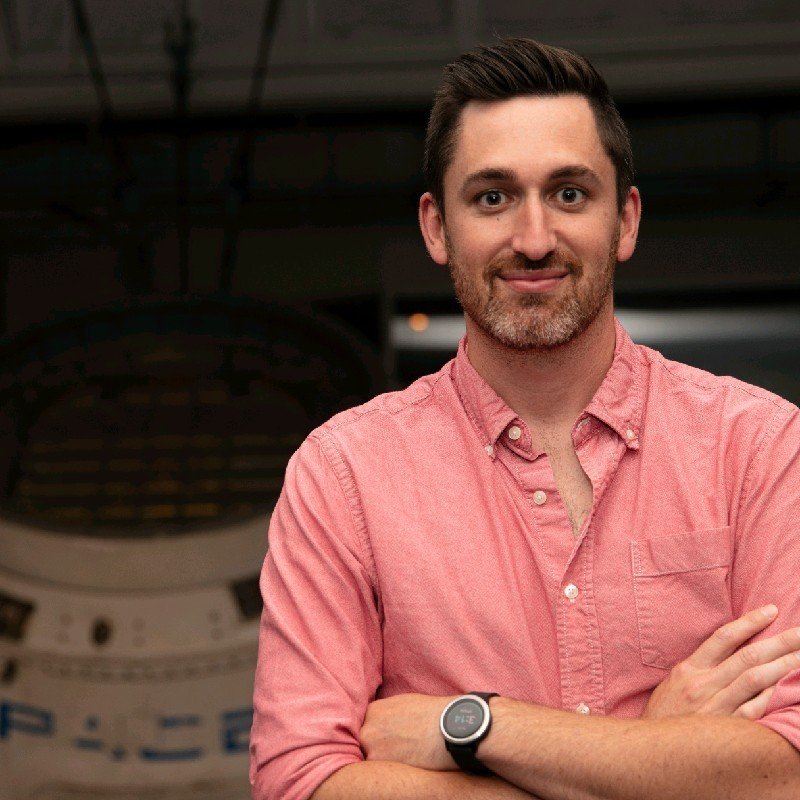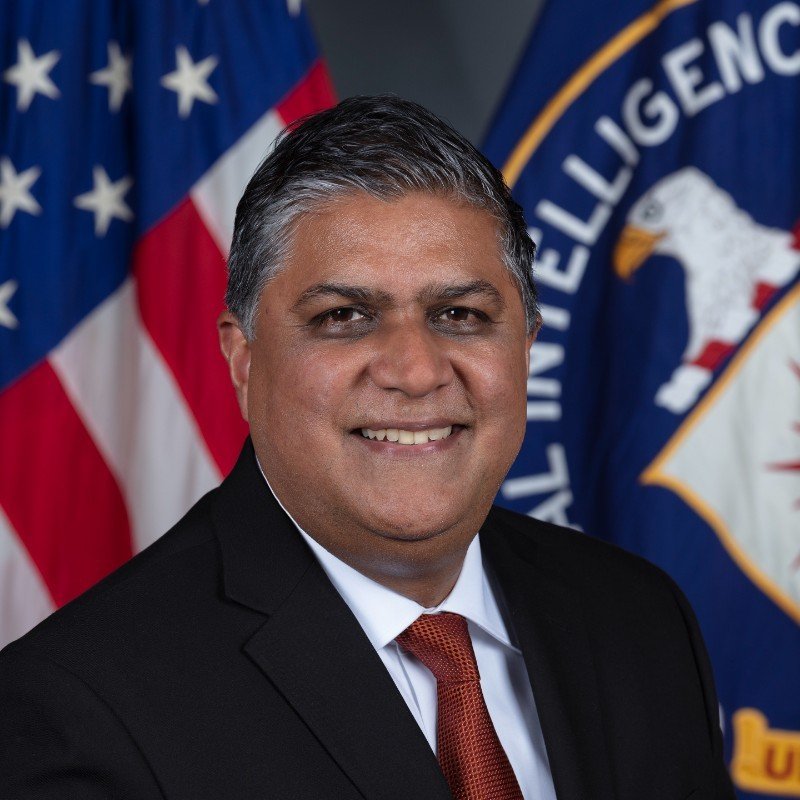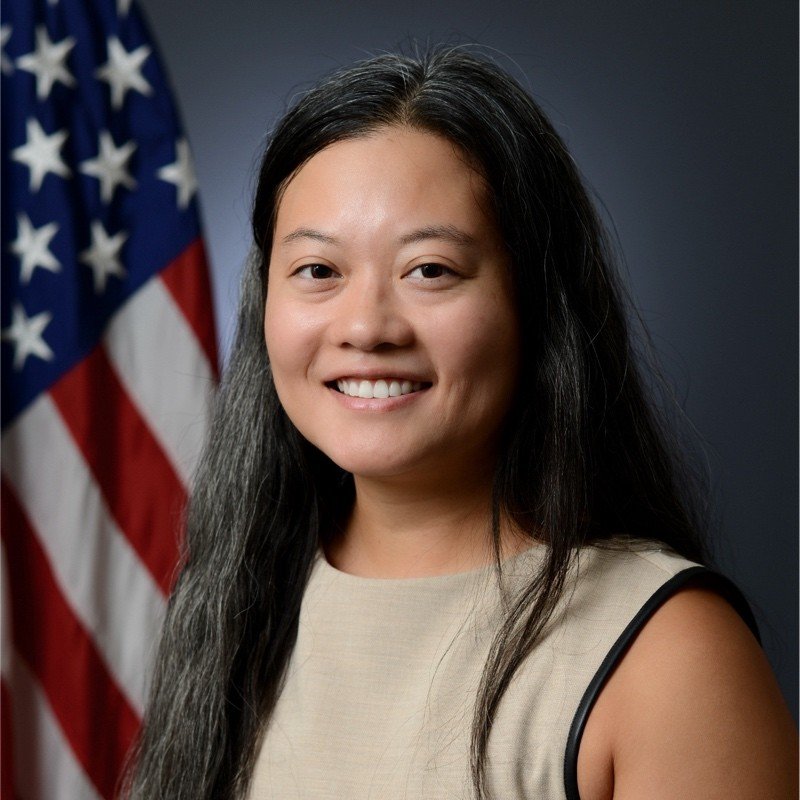Program
Keynotes
-

Trae Stephens
Co-Founder & Executive Chairman, Anduril
Partner, Founders Fund -
Admiral (ret.) John Aquilino
Former Commander, United States Indo-Pacific Command (USINDOPACOM)
Key Panels
The Future of War
-
Technological developments are reshaping the face of warfare. In Ukraine and the Middle East, on land, in the air, in space, at sea, and in cyberspace, we have recently witnessed new capabilities and platforms make their presence felt on the battlefield. This panel explores the broad sweep of what we have learned, presses on which technologies matter most, and asks what will change versus stay the same in future conflict. Panelists will also assess how well the United States and our allies are doing at testing and incorporating new technology, relative to our adversaries.
-

Shyam Sankar
CTO
Palantir -

Major General (ret.) Volodymyr Havrylov
Former Ukrainian Deputy Minister of Defense
-

Shaun Maguire
General Partner
Sequoia Capital -

Brad Boyd
Visiting Fellow
Hoover Institution
Defining Success in Defense Tech Investments
-
Bringing together leading experts in defense technology and venture capital, this panel will delve deep into the intricacies of investing in defense and dual-use technologies. As global security dynamics evolve at an unprecedented pace, understanding what constitutes success in defense tech investments has never been more crucial. The discussion will encompass critical topics such as navigating regulatory landscapes, balancing innovation with security requirements, and identifying emerging technologies that have the potential to redefine defense capabilities. Attendees will gain insights from a diverse range of perspectives, drawing on the expertise of seasoned professionals who are actively shaping the future of defense innovation. This panel aims to provide a comprehensive understanding of the challenges and opportunities within the defense tech investment landscape, equipping investors and innovators alike with the knowledge to make informed decisions in this complex and high-stakes sector.
-

Raj Shah
Managing Partner
Shield Capital -

Steve Bowsher
Chief Executive Officer
In-Q-Tel -

Chris Mintle
Managing Director, Aerospace & Defense
Lazard -

Asad Akram
Deputy Director (Strategy)
DOD Office of Strategic Capital -

Sarah Hess
Operating Partner
Point72 Ventures
Breakout Panels
Breakout Panel Session #1
Building Teams for the Future of Defense
-
The new era of defense is here, marked by a shifting toward fast-moving commercial companies as opposed to the existing primes, along with a return to dual-use. What insights, what team compositions, what public and private partnerships, and what general strategies do these startups need to use to actually sell into the US government? On this panel, founders and venture capitalists alike seek to answer what it takes to build a generational defense company in this new era.
-

Nini Hamrick
Co-Founder & President
Vannevar Labs -

Cameron McCord
Co-Founder & CEO
Nominal -

Ian Cinnamon
Co-Founder & CEO
Apex -

Akhil Iyer
Principal
Shield Capital
The Future of the Industrial Base: From Steel to Silicon
-
This panel will explore the evolving industrial base that underpins national security in the 21st century. As modern defense systems become increasingly reliant on advanced technologies, while still requiring some of the fundamental manufacturing capabilities of the 20th century, the panel will focus on the industrial base that underlies these systems, ranging from traditional and advanced manufacturing of metallic structures to advanced semiconductor products.
Panelists, including experts from industry, venture capital, and government, will discuss the challenges of supply chain security, the global competition for critical materials, and the need for resilient production capabilities in the various verticals necessary for national defense. They will address policy, technology, and investment strategies needed to ensure the U.S. industrial base remains competitive and adaptable in an era of rapid technological and industrial change. The session will also consider the role of public-private partnerships and the importance of innovation ecosystems in sustaining national security, concluding with insights into the future of the defense-industrial nexus.
-

Paul Kwan
Managing Director
General Catalyst -

Matt Gratias
VP, Federal Programs
Relativity Space -

Chris Baker
VP, Operations
Hadrian -

Mark Dickinson
Director, Virgnia Class Submarine Construction and Industrial Base Coordination
Naval Reactors -

Alex Lubkin
MBA Candidate
Stanford University
Space: Launch, Observation and Development
-
This panel will explore the rapidly evolving space technology landscape, focusing on key challenges and opportunities for both commercial companies and government agencies. Discussion topics include the demand for emerging technologies, alignment between commercial innovation and government needs, and obstacles faced by new companies entering the industry. Additional themes will cover technology acquisition processes, the role of dual-use technologies, and funding challenges for space startups. The panel will also examine successful collaborations between industry and government, strategies for scaling technological development, and future trends in space technologies that will shape the next decade of national security and innovation.
-

Jonny Dyer
CEO
Muon Space -

Daniel Owins
Chief, In-Q-Tel Interface Center
National Geospatial-Intelligence Agency -

Mark Seidel
CFO
True Anomaly -

Nirav Patel
Senior Scientist & Program Manager for Remote Sensing
Defense Innovation Unit -

Andrew Paulmeno
MBA Candidate
Stanford University
Breakout Panel Session #2
Innovation in the Intelligence Community
-
Advancements in artificial intelligence, machine learning, and data analytics are revolutionizing the Intelligence Community (IC), transforming how intelligence is processed and applied. Commercial partnerships and the integration of emerging technologies like quantum computing and advanced cybersecurity solutions are pushing the boundaries of IC capabilities. However, legacy systems, bureaucratic hurdles, and the challenges of incorporating commercial tech into classified environments remain significant obstacles. For venture capitalists, the IC market offers high-impact opportunities with high barriers to entry, ensuring exclusivity and long-term contracts. A strong track record, unique technological innovations, and proven adaptability to the IC’s rigorous demands are crucial for securing investments. While smaller than the DoD market, the potential for substantial impact and sustained relationships makes the IC an attractive target for investment.
-

Nand Mulchandani
CTO
CIA -

Larsen Jensen
Founder & GP
Harpoon Ventures -

Jonathan Clifford
Professional Staff Member for Technology & Innovation
House Permanent Select Committee on Intelligence -

Samuel Semwangu
CEO
Bazze -

Brian Katz
Business Unit Lead
Vannevar Labs
The R&D Ecosystem for Critical Technologies
-
Many of the emerging technologies that underpin today’s defense tech startups—such as artificial intelligence, quantum computing, and biotechnology—are deeply rooted in the research and development ecosystem. This panel will delve into how the U.S. can strategically cultivate these critical technologies by leveraging public-private partnerships, tapping into the expertise of academia and research PhDs, and capitalizing on the unique capabilities of government research labs. Core questions to be explored include how the R&D ecosystem can better align with national security needs, the most effective models for collaboration across sectors, and how the U.S. can stay ahead in the global race for technological dominance. The discussion will also grapple with the challenge of balancing fundamental, long-term research with the pressing need for applied solutions that translate into deployable capabilities for national security.
-

Bilal Zuberi
General Partner
Lux Capital -

Subodh Kulkarni
CEO
Rigetti -

Patricia Falcone
Deputy Director for Science & Technology
Lawrence Livermore National Laboratory -

Ali Keshavarzi
Adjunct Professor for Electrical Engineering
Stanford University -

Fritz Prinz
Leonardo Professor, Professor of Mechanical Engineering and of Materials Science and Engineering
Stanford University -

Ethan Klein
MBA Candidate
Stanford University
Innovation and Investing in Critical Minerals Resilience
-
The United States' increasing reliance on foreign sources for critical minerals has profound implications for national security and technological advancement. These essential materials, vital for constructing advanced weaponry are often sourced from nations that may not align with U.S. interests—or even pose potential threats. Despite historical efforts to mitigate such dependencies, we find ourselves more entwined with adversarial supply chains than ever before, highlighting systemic challenges in our innovation and investment ecosystems.
This panel will explore how the U.S. can leverage its strengths to improve the independence and resilience of critical material supply chains. We will delve into the complexities of fostering innovation within a free-market economy, especially when competing against state-controlled enterprises that use strategic resources as instruments of national power. Key questions include how investors and the government can better support companies commercializing novel technologies for critical minerals, and what roles federal initiatives should play in setting conditions for enhanced resilience.
-

Chris James
Founder & CIO
Engine No. 1 -

Taso Arima
CEO
IperionX -

Vy Nguyen
Deputy Director of Industrial Policy and Analysis
Office of the Undersecretary of Defense for Acquisition & Sustainment -

Matthew Sloustcher
Senior Vice President of Communications and Policy
MP Materials -

Nathan Ratledge
CEO
Alta Resource Technologies -

Barclay Jones
MBA Candidate
Stanford University
Breakout Panel Session #3
Crypto, Web3, and National Security
-
As cryptographic technologies and decentralized networks (Web3) advance at an unprecedented pace, national security faces both transformative opportunities and complex challenges. This panel brings together leading experts in cryptography, blockchain technology, cybersecurity, and defense policy to explore how these innovations are reshaping the security landscape by examining cryptography's dual role in protecting sensitive data while potentially enabling adversaries to obscure malicious activities; analyzing the implications of decentralized platforms on intelligence gathering, surveillance, and control of information; exploring how distributed ledger technologies can enhance supply chain security, identity management, and secure communication within defense infrastructures; debating the balance between fostering innovation in crypto technologies and implementing regulations to prevent misuse by hostile entities; and identifying new vulnerabilities introduced by crypto and Web3 technologies alongside strategies to mitigate associated risks.
-

Gus Lersten
Co-Founder & CEO
Labrys -

Daniel Goldsmith
CEO
Heights Labs -

Frank Liddy
Partner
Terranet Ventures -

Jay Long
Founder & COO
Parlay
Powering the AI Future
-
Our electrical supply is our key chokepoint in the U.S - China AI race. China has built 81x more grid capacity than the US over the last 20 years. Last year they installed more solar capacity that the rest of the world combined. Come listen to discussion between incredible thought leaders in the energy, data centers, and china policy...From the former CEO of the largest grid operator in the US (PJM) to the Defense Innovation Unit's Senior Military Advisor for their Energy Portfolio as we discuss how our grid capacity effects our AI future, what barriers and solutions they see in increasing our grid capacity, and how China is solving these questions.
-

Jeff Cox
Chief Innovation Officer
Tract -

Andy Ott
Head of Technical and Partner Operations for Tapestry
X, The Moonshot Factory -

Newt McKissick
Senior Military Advisor, Energy Portfolio
Defense Innovation Unit -

Emily Jin
China Analyst
Datenna -

Nico Enriquez
MBA Candidate
Stanford University
Autonomy in Action
-
"Autonomy in Action" will explore the rapidly evolving shift from human-led to autonomous systems as the next major frontier in warfare. Bringing together visionaries from the government and private sector, we will discuss how autonomous technologies are being developed, integrated, and scaled to meet today’s operational needs. We'll discuss the evolution of autonomy in a variety of domains, the challenge of retaining mission focus amidst diverse stakeholder agendas, and the future of multi-domain operations. Join us as we discuss the immense potential and obstacles that lie ahead.
-

Dino Mavrookas
Co-Founder & CEO
Saronic -

Stephanie Bonk
Co-Founder & President
Overland AI -

David Michelson
Director, Autonomy Portfolio
Defense Innovation Unit -

James Carlson
Chief Legal and Information Officer
Shield AI -

Connor Love
Partner
Lightspeed Ventures
Breakout Panel Session #4
Spectrum Dominance and Electronic Warfare
-
The rapidly evolving EW tactics observed in the Russia-Ukraine conflict highlight the imperative for agility in the electromagnetic spectrum. The defense tech industry is responding with scalable, flexible technologies that outpace traditional systems. Innovative startups are at the forefront, offering agile, cost-effective, and distributed solutions that disrupt conventional models. This panel will examine these lessons and explore EW planning in the Pacific theater, where near-peer conflicts will require a sophisticated integration of kinetic and electronic capabilities, positioning EW as a decisive element of modern military strategy.
-

Nathan Mintz
Co-Founder & CEO
CX2 -

John Davies
Program Manager, Microsystems Technologies Office
DARPA -

William "Dollar" Young
fmr. Commander, 350th Spectrum Warfare Wing
U.S. Air Force -

Yaroslav Kalinin
CEO
INFOZAHYST -

Justin Asuncion
Graduate Student
Naval Postgraduate School
Best Practices for Dual-Use Technologies
-
The "Best Practices for Dual-Use Technologies" panel will explore the challenges and opportunities of developing technologies that serve both commercial and defense markets. Industry leaders from Maxar, Hermeus, and US Innovative Technology Fund will share their insights on navigating regulatory landscapes, hardware vs. software innovation, and offer strategic advice for companies weighing defense-only versus dual-use models.
-

AJ Piplica
CEO
Hermeus -

Liz Stein
Managing Director
USIT -

Peter Wilczynski
Chief Product Officer
Maxar -

Andrew Couillard
MBA Candidate
Stanford University
Defense Applications for AI
-
As artificial intelligence continues to evolve at a rapid pace, its applications in defense are revolutionizing modern warfare and national security strategies. This panel brings together leading experts in AI technology, military strategy, cybersecurity, and defense policy to explore how AI innovations are reshaping the defense landscape by enhancing decision-making processes through predictive analytics and real-time data processing; improving surveillance and reconnaissance capabilities with advanced image and signal recognition; automating defense systems including drones and autonomous vehicles; and introducing new ethical and regulatory challenges related to autonomous weapons and AI governance. The discussion will delve into the integration of AI in defense operations, the potential risks and vulnerabilities such as adversarial AI and cybersecurity threats, and strategies for ensuring responsible development and deployment of AI technologies in defense contexts to maintain a strategic advantage while upholding international law and ethical standards.
-

Matt Cox
Founder & CEO
Beacon AI -

Greg Sands
Founder & Managing Partner
Costanoa Ventures -

Lindsey Sheppard
Deputy Director, Advanced Command and Control Accelerator
Department of Defense Chief Digital and AI Office -

Ahmad Nasir
JD/MBA Candidate
Stanford University
